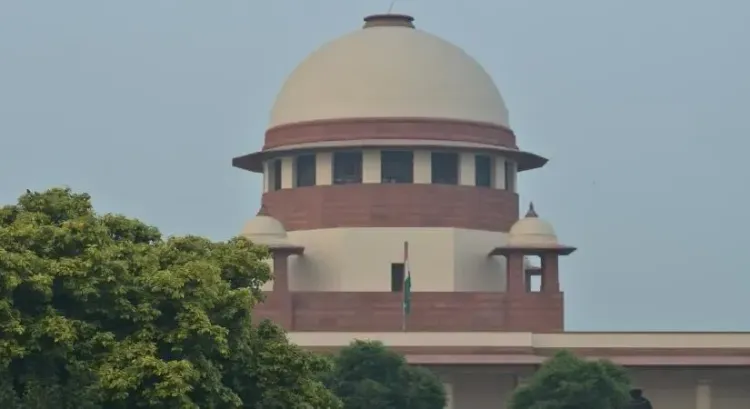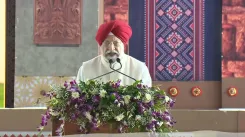What Will the Supreme Court Decide About the Waqf Amendment Act?

Synopsis
Key Takeaways
- The Supreme Court is set to rule on the Waqf (Amendment) Act, 2025.
- The Union government defends the Act as a means to enhance transparency.
- Critics argue it discriminates against Muslims and is unconstitutional.
- The Act modifies the Waqf Act, 1995, addressing the management of Waqf properties.
- The decision will have significant implications for Waqf property governance.
New Delhi, Sep 14 (NationPress) A Bench of the Supreme Court, led by CJI B.R. Gavai, is scheduled to deliver its ruling on Monday regarding the potential stay of the Waqf (Amendment) Act, 2025. This legislation is vigorously supported by the Union government, which argues that it serves as a mechanism to prevent the misuse of Waqf properties and promotes increased transparency in their administration.
On May 22, the Bench, which also included Justice A.G. Masih, reviewed the arguments presented by both the petitioners and the Centre across three sessions before deciding to reserve its judgment.
The legitimacy of this controversial Act, which took effect on April 5 following Presidential approval, has been contested by figures such as All India Majlis-e-Ittehadul Muslimeen (AIMIM) MP Asaduddin Owaisi and Congress MP Mohammad Jawed.
The challengers assert that the amendment discriminates against Muslims. Senior advocate Kapil Sibal, representing the petitioners, labeled the revised Waqf Act as “unconstitutional” and “arbitrary”.
Sibal specifically critiqued the provision allowing the suspension of a property’s Waqf status during an ongoing investigation.
Senior advocate Rajeev Dhavan contended that no external officer or entity holds the authority to determine what is essential to a religion. “Waqf is not merely a legal entity; it is a spiritual and social institution intricately linked to the lives of Muslims,” Dhavan noted, referencing previous Supreme Court rulings.
In contrast, Solicitor General Tushar Mehta, the second-highest law officer of the Centre, argued that the concept of Waqf is not fundamentally a religious practice. He asserted that Waqf boards managing these properties engage in secular and administrative roles.
The newly amended law modifies the Waqf Act, 1995, to better oversee Waqf properties, which are religious endowments or assets allocated solely for religious or charitable purposes according to Islamic law. On April 17, a Bench led by then CJI Sanjiv Khanna opted not to impose a stay on the Waqf (Amendment) Act, 2025, after the Centre assured the apex court that the disputed provisions would not be enforced immediately.







